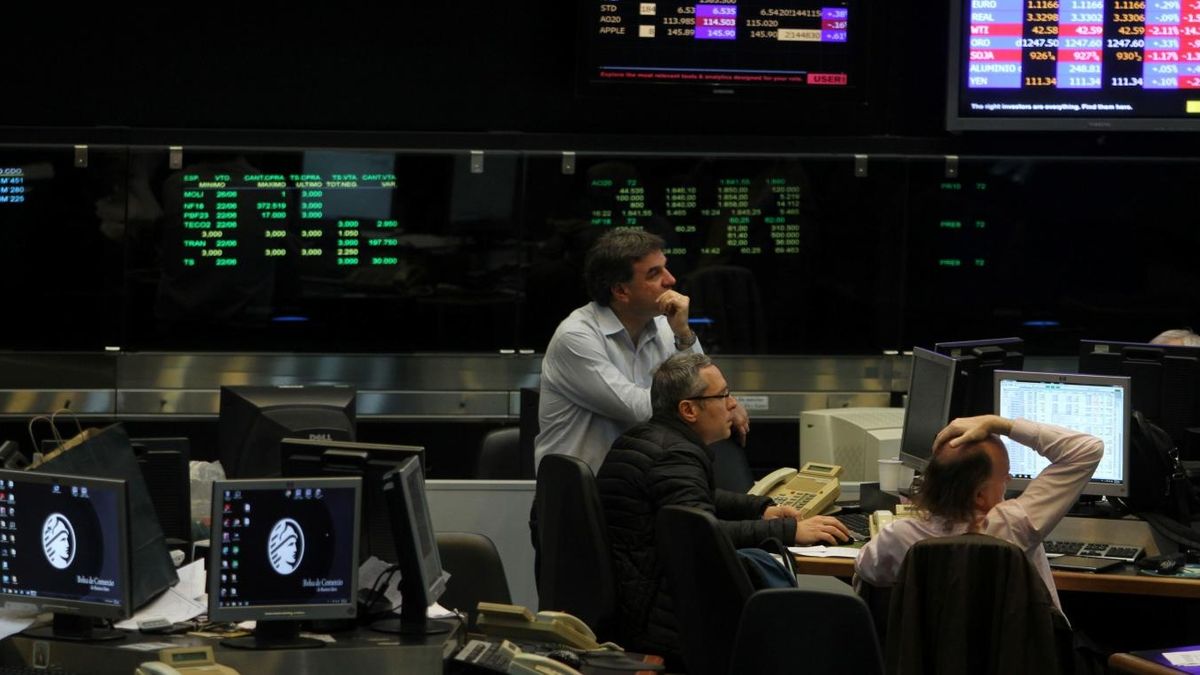The leading stock reference S&P Merval of Buenos Aires operated balanced around 138,100 unitscompared to an intraday historical maximum value of 150,971.41 points recorded days ago.
The shares that rose the most were those of Sociedad Comercial del Plata (+3.7%); Central Puerto (+3.2%) and those of Ternium (+3.1%).
“The Merval index confirmed a correction from its maximum of 150,000 points and has fallen by more than 10% in ten days. Although the main trend continues to rise, the Argentine market index could go looking for 135,000 points in the short term and, if it breaks that area, the target would be at 125,000“, said Mauro Natalucci of Rava Stock Market.
“In any case, the Merval has a profit of 66% in three months, the same that has been accumulated throughout the year,” he added.
The growing inflation hitting Argentina’s economy, which is expected to exceed 100% this year, exchange rate pressures and a high fiscal deficit, keep investors cautious.
Meanwhile, Argentine stocks operating in wall street they operate with the majority of increases, led by Cresud ADRs (+2.8%); followed by those of Globant (+2.1%) and those of Corporación América (+2%). Meanwhile, the losses are recorded by the shares of Tenaris (-2.1%); Banco Supervielle (-1.1%) and YPF (-0.4%).
Bonds and country risk
In the fixed income market, sovereign bonds in dollars operate with the majority of falls reaching 1.9% in the case of the Global 2038. Likewise, the Global 2030 falls 1.1% and the Bonar 2030 records a decrease of 0.8%.
A) Yes, the Argentine country risk measured by the JP Morgan bank stands at 2,754 units, a new maximum in two months.
In a climate of internal and external uncertainty, analysts speculate that the Government is working on the implementation of a “Stabilization Plan” for the economy, as Ámbito anticipated.
“Multiple versions circulate about possible new stages of the economic plan. However, if it is truly intended to bring inflation to a significantly lower level, it will be necessary to take more forceful measures to achieve control of the fiscal accounts and, particularly of the quasi-fiscal deficit, along with substantive changes to the exchange rate regime,” said Gustavo Reyes of the Mediterranean Foundation.
The Argentine Vice Minister of Economy Gabriel Rubinstein He wrote on his Twitter account that “Until we achieve currency unification, there will be some disorder and higher than normal business margins. But unifying the foreign exchange market, without a robust primary fiscal surplus, and almost without reserves, looks too risky.”
Source: Ambito
David William is a talented author who has made a name for himself in the world of writing. He is a professional author who writes on a wide range of topics, from general interest to opinion news. David is currently working as a writer at 24 hours worlds where he brings his unique perspective and in-depth research to his articles, making them both informative and engaging.




